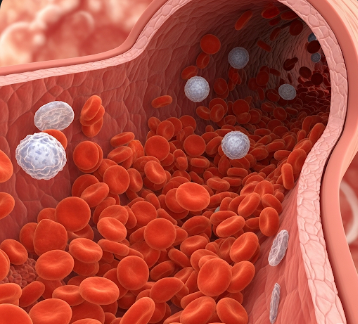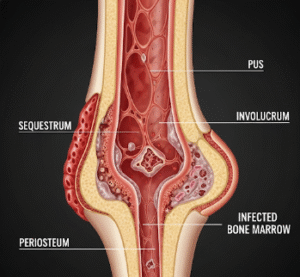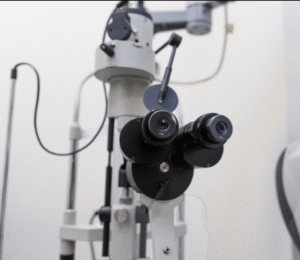Overview
A high red blood cell (RBC) count, medically known as erythrocytosis, occurs when the number of red blood cells in the bloodstream exceeds normal limits. Red blood cells are responsible for carrying oxygen from the lungs to tissues and organs, so an imbalance can impact circulation and oxygen delivery.
While mild elevations can be physiological adaptations, such as living at high altitudes, persistently high RBC counts may indicate underlying health issues, including polycythemia vera, heart or lung diseases, or kidney disorders.
In South Korea, modern hematology and medical centers provide diagnosis, monitoring, and comprehensive treatment for high RBC counts to reduce the risk of complications.
Key Facts
🟢 ➤ High red blood cell count is a condition where RBC levels exceed normal limits.
🟢 ➤ Can be temporary (physiological) or chronic (pathological).
🟢 ➤ Causes include dehydration, chronic hypoxia, heart or lung disease, kidney disorders, and bone marrow abnormalities.
🟢 ➤ Symptoms may be mild or absent but can include fatigue, dizziness, headache, or shortness of breath.
🟢 ➤ Untreated high RBC counts can increase the risk of blood clots, stroke, or heart problems.
🟢 ➤ South Korean healthcare centers provide blood testing, imaging, and individualized treatment plans.
What is High Red Blood Cell Count?
High RBC count, also called erythrocytosis, occurs when the body produces too many red blood cells, resulting in thicker blood.
Key points:
➤ Red blood cells (RBCs) are responsible for transporting oxygen.
➤ Increased RBC count raises blood viscosity, which can strain the heart and circulation.
➤ Can be primary (due to bone marrow disorders like polycythemia vera) or secondary (due to oxygen deficiency from lung disease, heart disease, or high-altitude living).
➤ Routine blood tests (CBC) help diagnose high RBC counts and guide treatment.
Symptoms Related to High Red Blood Cell Count
Symptoms may vary depending on the cause and severity:
🟢 ➤ Headaches and dizziness due to slower blood flow.
🟢 ➤ Fatigue or weakness from impaired oxygen delivery.
🟢 ➤ Shortness of breath, especially during exertion.
🟢 ➤ Red or flushed face (plethora).
🟢 ➤ Tingling or numbness in extremities.
🟢 ➤ Visual disturbances such as blurred vision.
🟢 ➤ Increased risk of blood clots, stroke, or heart attack in severe cases.
Causes / Possible Causes
High RBC count can arise from physiological adaptation or pathological conditions:
Primary Causes
➤ Polycythemia vera – bone marrow disorder producing excess RBCs.
Secondary Causes
➤ Chronic hypoxia due to lung disease, sleep apnea, or congenital heart disease.
➤ High altitude living – body adapts by producing more RBCs to carry oxygen.
➤ Smoking – carbon monoxide exposure increases RBC production.
Dehydration
➤ Reduces plasma volume, causing relative elevation in RBC count.
Other Causes
➤ Kidney tumors producing erythropoietin.
➤ Use of anabolic steroids or erythropoietin-stimulating agents.
When Should I See a Doctor?
Consult a healthcare professional if you notice:
🟢 ➤ Persistent headaches, dizziness, or visual disturbances.
🟢 ➤ Shortness of breath or fatigue.
🟢 ➤ Reddened face, hands, or other signs of blood thickness.
🟢 ➤ Blood tests showing elevated RBC, hemoglobin, or hematocrit levels.
🟢 ➤ Family history of blood disorders or polycythemia.
Early evaluation helps identify underlying causes and prevent complications such as blood clots or cardiovascular events.
Care and Treatment
Treatment depends on the underlying cause and severity of high RBC count:
Lifestyle and Hydration
➤ Maintain adequate hydration to reduce blood thickness.
➤ Avoid smoking and high-altitude exposure if possible.
Medications
➤ Drugs like hydroxyurea may reduce RBC production in polycythemia vera.
➤ Low-dose aspirin may be prescribed to prevent clot formation.
Phlebotomy (Therapeutic Blood Removal)
➤ Periodic blood removal lowers RBC, hemoglobin, and hematocrit levels, particularly in primary polycythemia.
Treatment of Secondary Causes
➤ Manage chronic lung or heart diseases to improve oxygen delivery.
➤ Adjust medications or hormone therapy that may contribute to elevated RBCs.
Advanced Care in Korea
➤ Hematology centers offer specialized blood tests, imaging, and personalized care plans.
➤ Multidisciplinary management ensures safety and optimal outcomes.
Highlights (Clean Green Arrow Version)
🟢 ➤ High red blood cell count (erythrocytosis) is an elevated RBC level in the blood.
🟢 ➤ Causes: polycythemia vera, chronic hypoxia, high altitude, dehydration, kidney tumors, smoking.
🟢 ➤ Symptoms: headaches, dizziness, fatigue, shortness of breath, flushed face, tingling, visual disturbances.
🟢 ➤ Diagnosis through complete blood count (CBC) and specialized tests.
🟢 ➤ Treatment includes hydration, medications, phlebotomy, and managing underlying conditions.
🟢 ➤ South Korea provides advanced hematology care, blood monitoring, and individualized treatment plans.













